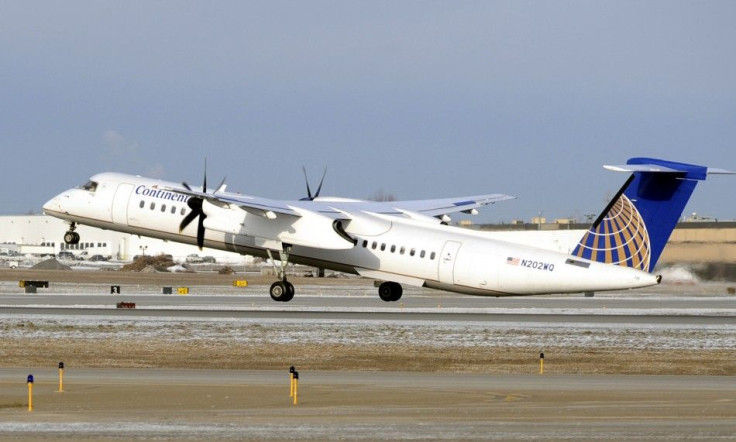FAA Sets New Pilot Standards Thanks To Families Of Continental Flight 3407

If the crash of Asiana Airlines flight 214 at San Francisco Airport Saturday taught us anything, it’s about how important pilot training is to ensuring passengers arrive at their destination safely. Many of the ensuing reports on the incident circled back to the last major aviation accident on U.S. soil: Continental Airlines flight 3407, which crashed en route to Buffalo, N.Y., in 2009, killing all 49 people aboard and one person on the ground. Due to a tireless campaign from the families of the victims on that flight, the Federal Aviation Administration, or FAA, announced Wednesday that, in a final rule to be published soon, it would increase the qualification requirements and training standards for pilots who fly for all U.S. passenger and cargo airlines.
A National Transportation Safety Board investigation into the crash of Flight 3407, completed in 2010, revealed that the aircraft stalled due to pilot error. The investigation unearthed a wide range of factors that may have contributed to the tragedy, including training standards and odd sleeping and commuting patterns of the pilots. The first officer on 3407 was sorely inexperienced, while the captain had failed five flight tests and had received inadequate training.
Though Flight 3407 was painted in the colors of Continental, it was operated completely by employees of Colgan Air, a regional airline that flew routes under contract for US Airways, United and Continental. Colgan, which Pinnacle Airlines Corp. phased out last September, did not have the same standards of training as the mainline carriers, who mandate certification beyond the bare minimum required under law.
Thanks to the efforts of the grassroots advocacy group Families of Continental Flight 3407, FAA has set substantially higher industry standards across the board. The new rule, announced Wednesday, requires pilots to have 1,000 flight hours as a co-pilot in air carrier operations prior to serving as a captain for a U.S. airline. First officers, meanwhile, must hold an Airline Transport Pilot certificate, which requires 1,500 hours of total time as a pilot. Previously, these co-pilots only needed a commercial pilot certificate, requiring just 250 hours of flight time.
"The rule gives first officers a stronger foundation of aeronautical knowledge and experience before they fly for an air carrier,” said FAA Administrator Michael Huerta. “With this rule and our efforts to address pilot fatigue -- both initiatives championed by the families of Colgan flight 3407 -- we're making a safe system even safer."
FAA pushed through new rules on pilot fatigue in December 2011 that addressed the basic business demands of present-day flying and the physical toll of a long day’s work. The updates, the first since the 1960s, offered longer rest periods before pilots report for duty and tighter restrictions on how many hours they can fly per week or month.
Newly appointed Transportation Secretary Anthony Foxx said he was especially pleased to push through the latest safety update for pilots in his first week in office. “We owe it to the traveling public to have only the most qualified and best trained pilots,” he stated.
Foxx said to expect more policy changes stemming from Flight 3407 this fall, including new training requirements to ensure pilots know how to react properly in difficult operating environments.
"Today's announcement marks a significant achievement in our fight to achieve a true 'One Level of Safety' for all commercial airline passengers, whether they are flying on regional or mainline carriers,” the Families of Continental Flight 3407 said in a statement Wednesday. “We dedicate it the memory of our loved ones who lost their lives in a needless and highly avoidable tragedy, because a regional airline took numerous shortcuts in how it hired, trained, scheduled and resourced its pilots. We reiterate that every passenger setting foot on a commercial flight deserves the same level of commitment to, and investment in safety.”
© Copyright IBTimes 2024. All rights reserved.





















